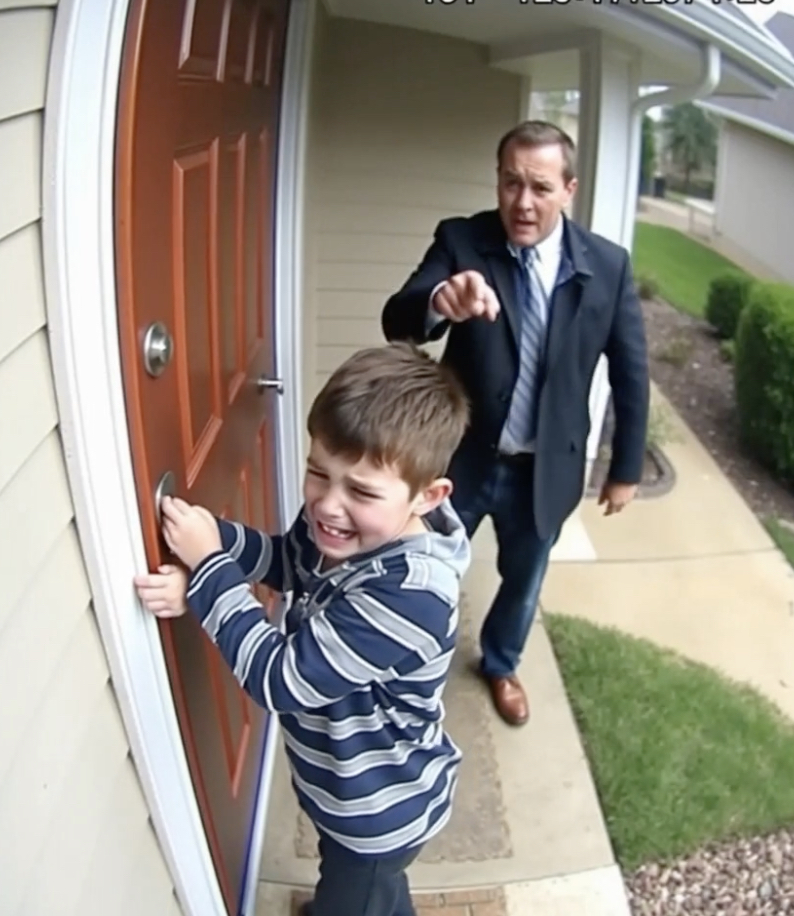
The room seemed to spin as I clutched the phone tighter. My heart pounded in my chest, and my throat went dry. That phone call was a turning point in my life, and I didn’t know it yet.
“Who is this?” I managed to ask, my voice shaking with a mix of fear and curiosity.
The voice on the other end was calm, yet carried an undertone of urgency. “Please, just come to the gallery on Saturday. You owe it to yourself — and to him.”
After the call ended, I sat in silence, grappling with an onslaught of emotions. Memories of that day, ten years prior, flooded back. The day I had coldly sent away the boy who had entered my life through circumstances I hadn’t chosen. The boy I had dismissed as nothing more than a burden.
The days leading up to Saturday were filled with restlessness. I was haunted by the possibility of facing the consequences of my actions. Each passing moment increased my anxiety, but I knew I had to go. I owed him that much, at least.
Saturday evening arrived, and I found myself standing outside the art gallery, hesitating before stepping inside. The air was thick with anticipation and fear. As I entered, the vibrant colors of the artwork seemed to mock my dull, colorless heart. The gallery buzzed with voices, but it all seemed muted to me. My focus was singular — find him, the boy I had wronged.
A woman approached me, recognizing me immediately. “You must be here for the special exhibit,” she said, gesturing toward a section of the gallery. “He’s been expecting you.”
I walked over, and there he was. It took me a moment to recognize him. Time had transformed the quiet, distant boy into a confident young man. His eyes, however, were unmistakable. They held a depth that spoke of experiences far beyond his years.
Our eyes met, and a wave of emotions crashed over me — guilt, regret, shame. The weight of those ten years bore down on me. He approached me with grace, a small smile playing on his lips, an artist’s calm.
“Hello,” he said, his voice steady and warm. “I’m glad you came.”
I struggled to find words. “I… I didn’t know,” I stammered. “I didn’t know what happened to you.”
He nodded, understanding rather than accusing. “I wanted you to see this,” he said, guiding me to a painting — a portrait of a woman, painted with striking emotion. My heart skipped a beat as I recognized her, my late wife, his mother.
“I painted it from memory,” he explained. “I wanted to honor her strength, her love… and her forgiveness.”
Tears welled up in my eyes. “I’m sorry,” I whispered, the words finally breaking through the dam of my regret. “I was wrong. I… I should have been there for you.”
He placed a reassuring hand on my shoulder. “I forgave you a long time ago,” he said softly. “I wanted to show you that I’ve made a life for myself. I’m happy.”
In that moment, I realized that the truth revealed wasn’t just about his survival — it was about his resilience, his capacity to forgive, and the unyielding strength of the human spirit. As I stood there, surrounded by his artwork, I understood that it was never too late to seek forgiveness, to make amends, and to learn that love, in all its forms, is the most profound truth of all.